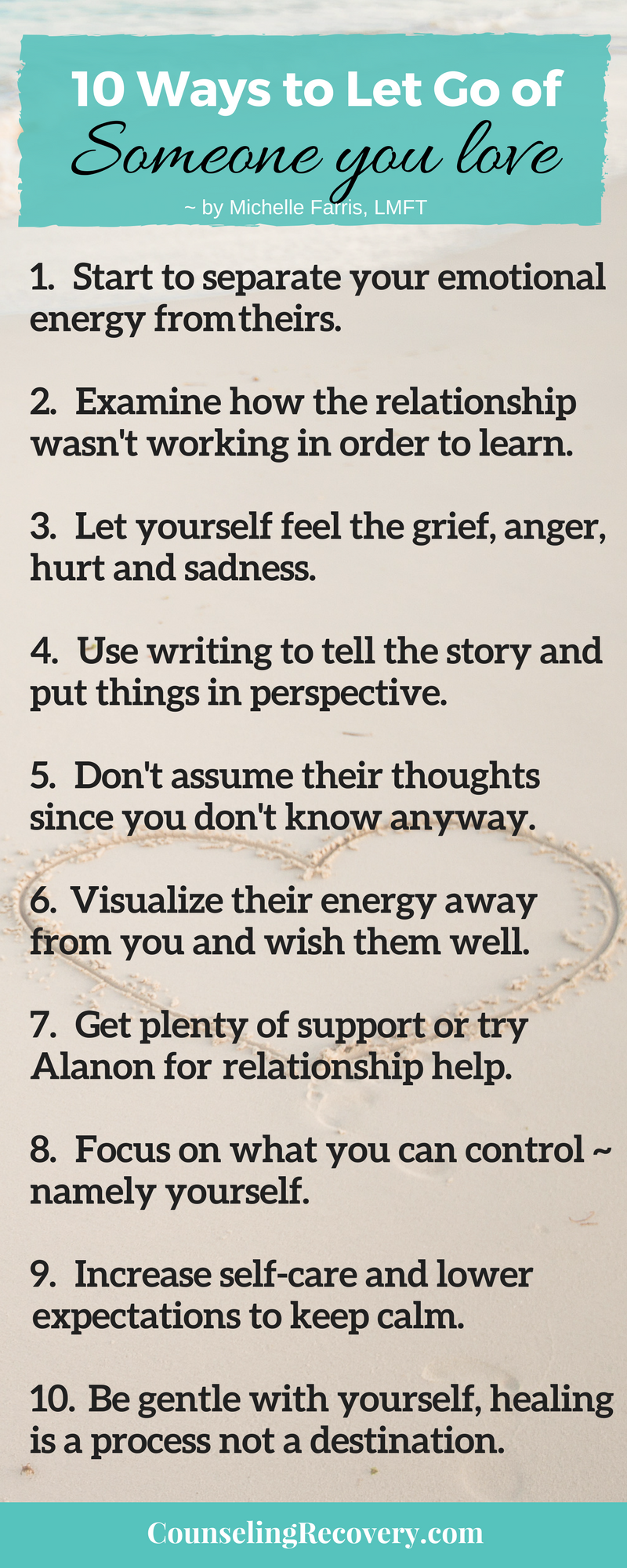
5 Healthy Ways to Let Go of Someone Who Hurt You
Being hurt by someone we care about can be a deeply painful experience. It can leave us feeling betrayed, angry, and emotionally drained. Holding onto this pain, however, can prevent us from moving forward and finding happiness. Letting go of someone who hurt you is an essential step in healing and reclaiming your emotional well-being.
This process is not easy, and it may take time. However, by embracing healthy coping mechanisms, you can gradually let go of the hurt and begin to move on. Here are five effective ways to navigate this challenging journey:
1. Acknowledge and Validate Your Feelings
The first step in letting go is acknowledging and validating your emotions. Don't try to suppress or ignore your feelings of hurt, anger, or sadness. Allow yourself to feel these emotions fully.
It may be helpful to journal about your experiences, talk to a trusted friend or therapist, or engage in creative outlets like art or music. Expressing your emotions in a healthy way will help you process them and begin to move forward.
Importance of Self-Compassion
It's also crucial to practice self-compassion during this time. Remind yourself that it's okay to feel hurt and that you're not alone in experiencing these emotions. Be patient with yourself, and avoid self-blame or judgment.
2. Practice Forgiveness (Not for Them, but For You)
Forgiveness is often misunderstood. It's not about condoning the other person's actions or forgetting what happened. It's about releasing the bitterness and resentment that you're holding onto. Holding onto anger and resentment only serves to keep you stuck in the past.
The Benefits of Forgiveness
Forgiving the other person, even if they don't deserve it, can be a powerful act of self-care. It allows you to break free from the emotional chains that are holding you back. Forgiveness is not a sign of weakness but rather a testament to your strength and resilience.
3. Create Distance (Physical and Emotional)
Physical and emotional distance can be crucial in the healing process. If you still have regular contact with the person who hurt you, it may be necessary to limit or eliminate this contact. This includes phone calls, texts, social media interactions, and any other form of communication.
The Importance of Boundaries
Establishing clear boundaries is essential. This may involve setting limitations on what you're willing to discuss or how much time you're willing to spend with them. It's important to prioritize your own well-being and protect yourself from further hurt.
4. Focus on Self-Care
Taking care of yourself physically, emotionally, and mentally is essential during this time. Engage in activities that nourish your soul and bring you joy. This might include exercise, spending time in nature, pursuing hobbies, or connecting with supportive friends and family members.
Examples of Self-Care Activities
- Exercise: Physical activity releases endorphins, which have mood-boosting effects.
- Meditation or Yoga: These practices can help you manage stress and promote relaxation.
- Mindful Activities: Engage in activities that bring you present-moment awareness, such as gardening, painting, or cooking.
- Social Connection: Spend time with loved ones who support and uplift you.
- Therapy: Seeking professional guidance from a therapist can provide a safe space to process your emotions and develop healthy coping mechanisms.
5. Cultivate a Growth Mindset
Instead of dwelling on the past, focus on what you can learn from this experience. Every challenge presents an opportunity for growth and transformation. Shift your perspective from one of victimhood to one of empowerment.
Utilizing the Experience for Personal Growth
Ask yourself questions like:
- What can I learn from this experience?
- How can I use this to build stronger relationships in the future?
- What are my strengths and resilience in the face of adversity?
By embracing a growth mindset, you can turn this painful experience into a catalyst for personal growth and positive change.
Remember, It Takes Time
Letting go of someone who hurt you is a journey, not a destination. It's important to be patient with yourself and recognize that there will be ups and downs along the way. Allow yourself the time and space to grieve, process your emotions, and heal.
If you find yourself struggling to move on, seeking support from a therapist or trusted friend can be incredibly beneficial. Remember, you're not alone in this journey, and there is hope for healing and happiness in the future.
No comments:
Post a Comment
Note: Only a member of this blog may post a comment.